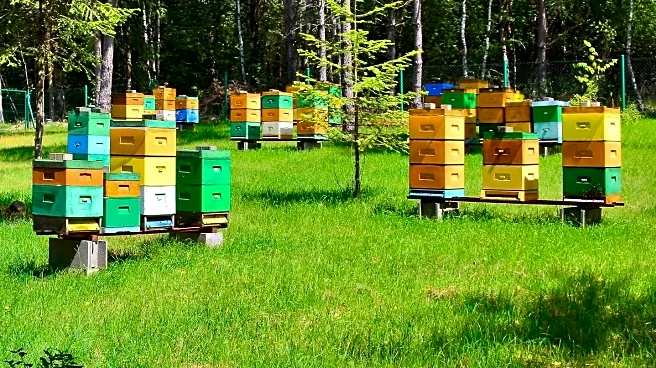What's Happening?
The concept of 'bee hotels' is gaining traction among hoteliers as a means to support biodiversity and sustainability. Bee hotels provide nesting spaces for solitary bee species, which are crucial for pollinating native plants. Unlike the more commonly known European honey bees, these solitary bees are specialist pollinators that help maintain plant biodiversity. The installation of bee hotels is a low-cost initiative that can enhance a hotel's sustainability credentials and appeal to eco-conscious travelers. This initiative aligns with broader efforts to support environmental stewardship and can be integrated into a hotel's storytelling and branding strategies.
Why It's Important?
Bee hotels represent a significant step towards promoting ecological balance and supporting native bee populations, which are vital for maintaining healthy ecosystems. By fostering biodiversity, hotels can contribute to environmental resilience and sustainability. This initiative also offers a unique marketing opportunity, as guests increasingly value eco-friendly practices. Incorporating bee hotels can enhance a hotel's reputation and guest loyalty by demonstrating a commitment to environmental responsibility. Additionally, supporting both generalist and specialist pollinators ensures a balanced ecosystem, which is crucial for agriculture and food systems.
Beyond the Headlines
The adoption of bee hotels highlights the broader trend of integrating sustainability into business practices. This approach not only benefits the environment but also aligns with consumer preferences for sustainable travel options. By supporting native bee species, hotels can play a role in preserving local ecosystems and promoting biodiversity. This initiative also reflects a growing awareness of the importance of protecting pollinators, which are essential for food production and ecological health. As more hotels adopt these practices, it could lead to a shift in industry standards towards greater environmental responsibility.









